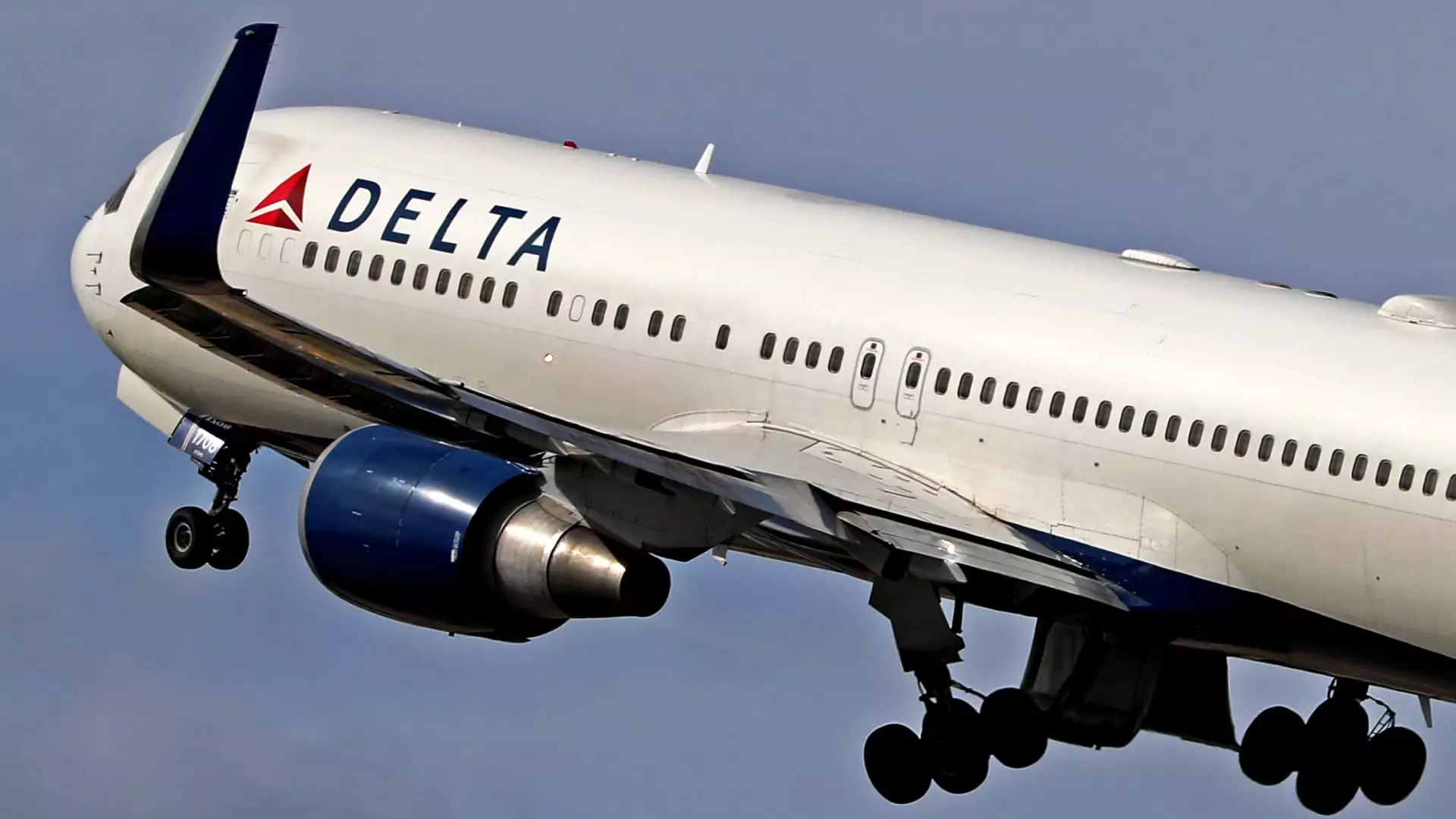The recent slide of airline stocks has become a glaring signal of discontent in the travel industry. As Wall Street grimaces at the prospect of weaker-than-anticipated travel demand, carriers are experiencing sharp declines that have fueled fears about a recession. The change in consumer confidence has not just nudged these stocks downward; it has sent them plummeting. Delta Air Lines, once regarded as the crown jewel of the U.S. airline sector, is a prominent example. Its recent downgrade from Jefferies, which now predicts further cuts to its earnings forecasts, has highlighted a crisis that many investors simply cannot ignore.
The Financial Ramifications
Delta’s decline, characterized by its over 2% drop and a price target slashed significantly to $46, serves as a warning for other airlines. American Airlines and Southwest Airlines followed suit, suffering a 2% and more than 5% decline, respectively. Such contractions raise questions about the future profitability of these major carriers as they attempt to navigate an unforgiving economic landscape. Jefferies has shown skepticism not only towards Delta but across the American airline sector, even downgrading Air Canada’s prospects due to its heightened vulnerability to a slowdown in cross-border travel. This leaves United Airlines as the singular ‘buy’ recommendation among U.S. airlines, albeit with a reduced price target that reflects a dampened long-term outlook.
The Consumer Confidence Crisis
A critical aspect of this turmoil is the disconnect between overall consumer spending patterns and airline-specific data. Despite a slight 1.5% increase in credit and debit card spending overall, airlines have seen a staggering 7.2% drop in consumer bookings. The Bank of America’s analysis posits that falling consumer confidence is prompting potential travelers to delay or reconsider their travel plans. While some might argue that seasonal factors like bad weather and a late Easter have played a role in this downturn, it’s hard to overlook the deeper questions regarding consumer sentiment that this crisis raises.
The Shift in Revenue Streams
Interestingly, while Delta’s executives communicate optimism about growing revenue from upscale services, including first-class seats and a lucrative credit card partnership with American Express, the crucial question around broader market dynamics remains. Are we witnessing a demographic shift where budget-conscious travelers are simply fading from the scene, creating a bifurcated revenue model that risks alienating a significant portion of potential customers? While Delta attempts to pivot toward more affluent travelers, the possibility exists that this strategy might overlook a broader economic malaise affecting the average flyer.
Outlook for the Future
The recent earnings reports for U.S. airlines will be crucial. For Delta, the stakes are higher than ever. The upcoming earnings call will reveal if their optimistic projections can withstand the scrutiny of declining travel demand and shifting consumer habits. As the NYSE Arca Airline Index suffered an 18% decline in the first quarter, significantly outpacing the market, it becomes abundantly clear that significant reform might be necessary within this industry. Can these airlines reinvent themselves while weathering the storm, or are they destined to become relics of a more prosperous travel era? The answers lie just beyond the horizon, shrouded in uncertainty and looming tariffs.

